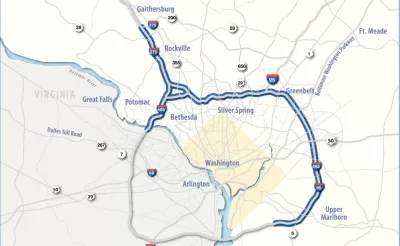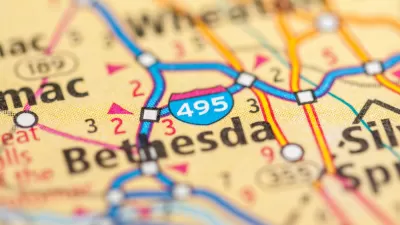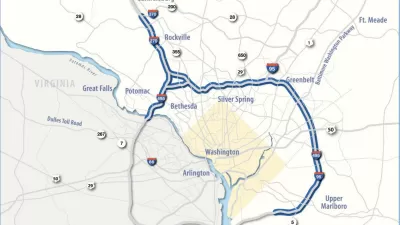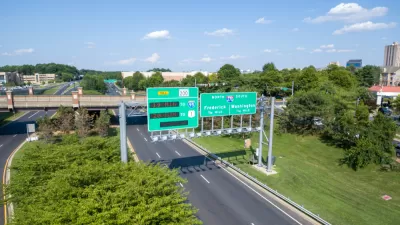Interstate 270, the Capital Beltway, will no longer by widened as part of the I-495/I-270 Managed Lanes Project.

Briana Adhikusuma reports: "The Maryland Department of Transportation has removed the Capital Beltway from a plan to widen Interstate 270, after the broader plan drew months of opposition from local officials, residents and environmental advocates."
As noted by Adhikusuma, the project has faced numerous criticisms in recent years, as the project worked through its draft environmental impact statement and went out to bid.
"MDOT’s announced the change on Wednesday, saying there is a new recommended preferred alternative for the project’s first phase. The new alternative will only focus on construction of a new American Legion Bridge and two high-occupancy toll (HOT) managed lanes in each direction from I-270 to I-370," according to Adhikusuma.
"As part of the new alternative, the proposal includes adding one HOT managed lane and converting an existing high-occupancy vehicle lane into a HOT managed lane on I-270 from I-495 to north of I-370, and on the I-270 eastern spur from east of Md. 187 to I-270."
There is no change proposed to the segment of the project on Interstate 495 east of Interstate 270's eastern spur, however.
For the next steps in the project's evolution, expect a late summer release of the Supplement Draft Environmental Impact Statement for the project’s first phase.
FULL STORY: Capital Beltway removed from plan to widen I-270

Planetizen Federal Action Tracker
A weekly monitor of how Trump’s orders and actions are impacting planners and planning in America.

Restaurant Patios Were a Pandemic Win — Why Were They so Hard to Keep?
Social distancing requirements and changes in travel patterns prompted cities to pilot new uses for street and sidewalk space. Then it got complicated.

Map: Where Senate Republicans Want to Sell Your Public Lands
For public land advocates, the Senate Republicans’ proposal to sell millions of acres of public land in the West is “the biggest fight of their careers.”

Maui's Vacation Rental Debate Turns Ugly
Verbal attacks, misinformation campaigns and fistfights plague a high-stakes debate to convert thousands of vacation rentals into long-term housing.

San Francisco Suspends Traffic Calming Amidst Record Deaths
Citing “a challenging fiscal landscape,” the city will cease the program on the heels of 42 traffic deaths, including 24 pedestrians.

California Homeless Arrests, Citations Spike After Ruling
An investigation reveals that anti-homeless actions increased up to 500% after Grants Pass v. Johnson — even in cities claiming no policy change.
Urban Design for Planners 1: Software Tools
This six-course series explores essential urban design concepts using open source software and equips planners with the tools they need to participate fully in the urban design process.
Planning for Universal Design
Learn the tools for implementing Universal Design in planning regulations.
Heyer Gruel & Associates PA
JM Goldson LLC
Custer County Colorado
City of Camden Redevelopment Agency
City of Astoria
Transportation Research & Education Center (TREC) at Portland State University
Camden Redevelopment Agency
City of Claremont
Municipality of Princeton (NJ)





























